- Home
- Lisa Wingate
Dandelion Summer Page 26
Dandelion Summer Read online
Page 26
My eyes got wide, and so did Mr. Nelson’s. There were at least eight different kinds of books on that shelf. A couple of them were big hardbacks with lots of pictures. I knew those weren’t cheap. Altogether, J. Norm had probably ordered over two hundred dollars’ worth of books. The day my mama ever dropped a hundred dollars on books would be the day pigs grew wings.
“Sounds like my granddaughter and I have some reading to do,” J. Norm told Mr. Nelson when they were walking back to the cash register. I liked it that he said my granddaughter, even though he didn’t have to right then.
“Guess we do, Grandpa.” I don’t know why I answered that way, because Mr. Nelson was already convinced, as far as I could tell. I guess it just felt good.
When Mr. Nelson was ringing up our books and two ice-cream cones, J. Norm asked him if he had the book we’d been hunting all day. The one by Mrs. Mercy White. Mr. Nelson threw his head back and whistled. “Hoo-eee! Where’d you hear about that book? If I carried that thing in here, I’d be out of business in a week. That book ruffled more feathers than a stray dog in a chicken yard. The lady who wrote that hadn’t lived here in years. Her daddy was the sheriff, but he eventually got crosswise of the wrong people and got himself run out of town. Guess Mercy had been waiting her whole life to grind some axes, but she sure shook up the town when she put that stuff in print. The poor fella who published that book, Leland Lowenstein, eventually had so many lawsuits and threats put against him that he just shut up his little printing company and moved out of the county. Bought the newspaper down in Littlewood. That’s been, oh . . . fifteen, maybe twenty years ago now. Since then, interested parties have pretty much gathered up every copy and performed proper burials, so to speak.”
After that, we walked out of the store lugging J. Norm’s haul of books and eating double-dippers. They were dripping fast, so we sat on the bench across the street for a minute, taking in the warm spring day.
While we were working our way down to the cones, I picked one of the books out of the sack—one of the big hardbacks with lots of pictures and some town history here and there. “You know,” I told J. Norm in between bites of ice cream, “they probably have all of these at Ward House.” I recognized some of the titles. “We could’ve just looked at them there and saved the money.”
J. Norm was leaning back in the sun, enjoying his mint chocolate chip. “I felt the need for my own copies. If our trip doesn’t pan out today, I can take them home to Dallas with me and keep looking at them. Something might ring a bell.”
It bothered me that he was talking about giving up. I wasn’t ready. Even though all I had with me was a couple pairs of jeans, two T-shirts, underwear, a toothbrush, and the envelope of money I’d been stashing under my bed, this trip was like a promise. A promise to figure out the mystery. I didn’t want to quit until the promise was kept, and besides that, I wasn’t going back to Dallas. I didn’t know yet what my plan was, but I wasn’t going back.
I read the name carved in stone on the building across the street. VANDRAAN, in big, block letters, kind of oozy and black around the edges where rainwater had drained down. “That name doesn’t ring a bell—VanDraan?” I flipped to the back of the book, to the “V”s in the index.
Norman shook his head. “It’s odd. There are only bits and pieces in my memory. Like random factors of an equation, nothing more. Not enough to solve it.”
The name was in the index. VanDraan, Luther. I popped the rest of my ice-cream cone into my mouth—not very ladylike, because my cheeks bulged, but I needed both hands. Swiping off on my jeans, I split the book down the middle and started turning toward page 136.
Page 132 . . . some train.
Page 133 . . . a herd of cows and cowboys at the stockyards.
Page 134 . . . a picture of an old petition from back in 1911.
Page 135 . . . a bunch of soldiers marching through the town in World War I.
Page 136 fell open, and there were pictures. Five of them. The bank building, the store, a big white house with three stories and an iron fence around it. Under that, there was a picture of three black ladies working in the kitchen, dressed in maids’ uniforms.
In the last photo on the page, underneath the maids’ picture, I found what I was looking for. The VanDraans.
Chapter 19
J. Norman Alvord
Gazing at the pictures was a waking dream. Could it be that after all this time, I was coming face-to-face with the ghosts that had haunted me, the past I’d always felt but never recognized until the day my near death had unlocked some long-closed door?
I knew these pictures. I knew the house. I knew the people. The women in the kitchen, I could hear them laughing, and I knew that sometimes they would sing as they worked—hymns, blues songs by W. C. Handy or Mamie Smith. One of the women pictured was Cecile. She was young, even younger than I might have thought her in my dream. In the photo, she was lowering a rack of mason jars into a boiling pot. They were canning. I knew how the kitchen would smell—like steam and vinegar, paraffin and seared vegetables. From the corner, a baby in a high chair looked on, chubby cheeked, with pale skin and downy curls. The fluff of hair was red. Red, like mine. I knew this despite the lack of color in the photo. I knew the children in the next photo also. The girls, twins, their flyaway waves of hair gathered into bows, and the boy, a stout-legged toddler, red hair also, blue eyes, a little button of a nose that made him look as if he’d grow to be a rascal, given half a chance.
My finger traced the photo, trembled upward from the children’s faces to the woman standing to their left. A beautiful woman. She was wearing a stylish floral-print dress, a fashionable belt cinched tightly at her waist. Her hair had been pinned up under a wide-brimmed hat, as if she were attired for an occasion. Some holiday, Easter perhaps. She’d turned her face slightly away from the camera, so that the shadow of the hat brim made her no more than a ghost in the picture. A ghost with murky features and eyes that said nothing. In the right of the frame sat a man in a chair, his posture straight and stern, the baby poised on his knee. A hand rested on his shoulder, a boy’s hand. My hand. My gaze traveled upward, and I looked into my own eyes.
Epiphany touched the photo, pointed as if to make certain I’d seen. “J. Norm, that’s you.” She breathed the words with obvious surprise, as if she hadn’t believed until now that all of this was real.
“Yes, it is.” There was no doubt. I’d seen enough of my own childhood pictures to know myself, and so had Epiphany. The mother who raised me had photographed me within an inch of my life, but there had always been a gap in those photos. There were pictures of me as a baby, even pictures of me in her arms. He looked more like you when he was young, acquaintances would say to my mother when they came to visit our home.
Mother would only laugh and reply, Norman takes resemblance from my father. My father had red hair and a cleft in his chin, God rest him.
Did those friends on our street in Dallas ever look, really look at those baby pictures, and wonder?
I traced a finger along the names in the caption beneath the photo. The VanDraan family, it read. Front, Luther VanDraan, wife Fern. Children, left to right, Erin, Emma, Johnny, Paul (infant), and Luther William VanDraan Jr. (called Willie), shortly before a fire destroyed VanDraan House, taking the lives of the five children, as well as Fern VanDraan, and an African-American housekeeper, Cecile Bell.
Cecile Bell. She had a last name now, and I had a name, too: Luther William VanDraan, called Willie. The name became a part of me as I looked into the eyes of the boy. The boy who had not perished in that fire, but somehow, through an unknown set of circumstances, had been transported to another life. This was the secret my mother had been hiding all these years. The reason she was afraid to send me to school or allow me beyond the perimeter of our yard when I was small. She was waiting. Waiting for me to grow, to change, to fully become someone else, all traces of my past gone from my memory and from the rest of the world.
“J. Norm.” Epi
phany’s tone was grave, contemplative. “If you didn’t die in that fire, maybe the rest of them didn’t either.” As usual, her mind was one step ahead of my own. That was the thought I had been reaching for, the next section of track to be laid into the uncharted lands. What was true and what was untrue, and how would I know the difference?
Closing the page, Epiphany stood up, then dropped the book in the sack and scooped it off the bench. “Let’s go, J. Norm. We need to see the graveyard and where the house was.”
I stood up too quickly, and my heart rapped hard against my chest, lurching unevenly in a way that caused the street to narrow and then expand before me. These past two days, with so much activity and excitement, were far outside my normal routine. I gripped the back of the bench, steadying myself.
Epiphany didn’t notice. “C’mon, J. Norm.” She trotted ahead toward the car, her dark hair swinging from side to side over her shoulders, her long legs covering ground in enthusiastic, confident strides. Turning, she walked backward a few steps. “Hey, just stay there. I’ll go get the car.” She began hurrying off without waiting for an answer.
I called after her anyway, “You’re not allowed to drive alone!”
“It’s just up the street!” Checking for traffic, she jogged across, then hurried along the other sidewalk to the car. Obstinate as usual, she put the books in the back, climbed in, pulled onto the street, and turned around in the driveway of a pharmacy before I had any hope of stopping her. She was beaming when she pulled to the curb beside me and rolled down the window. “Hey, dude, need a ride?”
I shouldn’t have laughed. It would only encourage her.
“Learner’s permit,” I reminded her, as I slid into my seat. I’d put a pill under my tongue while she was gone, and my heart was settling now, the tightness fading. Still, I felt oddly off balance. Perhaps it was the photos, or perhaps I wasn’t certain I wanted to see the graves. It’s a strange thing to think about viewing one’s own resting place.
“I know, I know,” she huffed. “But you gotta admit, I’m getting better at driving.”
“A bit,” I allowed, and she beamed again.
“Come on, J. Norm. You couldn’t have figured all this stuff out without me. We’re like Bonnie and Clyde.”
“Bonnie and Clyde robbed banks.”
“Same difference.” Shrugging, she repeated the shopkeeper’s directions under her breath, “Right on Dogwood Street, three blocks . . . right on Dogwood Street . . .”
We continued along the road and turned on Dogwood. The mini storage sat on a corner lot next to a yellow Victorian house that may have been grand once, but now looked as though it were slowly surrendering to the wind and the weather. Across the street, a low-income rental complex had been built, and beyond that, several lots had been cleared for trailer homes. Down the block, a number of old homes had undergone what appeared to be haphazard renovations. On the whole, it was clear that the neighborhood, once upscale and the toast of Groveland, had long since fallen into decline.
There appeared to be no on-site supervision at the mini storage, so Epiphany and I drove in as if we owned the place. “Circle around to the back,” I said. “See if the fence is still there.”
“ ’Kay.” She cast worried looks toward the side mirrors while navigating the narrow aisle between two storage buildings. “Man, this is skinny. How do they expect people to drive through here?”
I leaned toward my window to see around the corner to the back of the lot, where weeds, wild grapevines, and brambles grew in a tangle, like the wall of thorns around Sleeping Beauty’s castle. My breath caught in anticipation. Somehow, it seemed that if I could touch a bit of the house, hold it in my hand, the rest of my memories might come flooding back.
As we cleared the building, I saw the corner post among the weeds, a thick, heavy brick structure with an ornamental iron finial atop—the head of a lion entwined with vines, encrusted with a patina of dirt and rust and moss. In my mind, it was freshly painted, the teeth catching the noonday sun, sending a chill of foreboding over me.
Epiphany turned off the car and stepped out, but I was barely conscious of her. My mind cartwheeled back in time as I started toward the corner post. A section of iron fencing lay sideways in the weeds, the vines winding in and out like threads in a needlework canvas. Epiphany leaned over the tangle of grass and brush, reached, then pulled her hand away without touching. “Oh, shoot, there’s poison ivy everywhere.” She pointed, and, indeed, she was right.
Bracing a hand on one knee, I bent toward the grass. Epiphany caught my arm protectively. “J. Norm, don’t. You’ll catch pois—”
I plucked a dandelion from the edge of the brush, stood up again. Staring at the flower, yellow and lacy, I saw the hands of my little sisters, heard their laughter. My sisters. My brother. And the baby. Another boy. My sisters. My brothers. Two of each. All these years, I’d been an only child, but in truth I wasn’t.
Reaching across the weeds, I laid a hand against the corner post, willed the memories to come back, but they remained a garden in the mist, alluring, tempting, yet impossible to make out.
“Did you remember something?” Epiphany asked.
I shook my head, looking up at the iron finial. The lion’s mouth made me shudder, even now. In my mind, I saw another one like it, a smaller version capping an iron post, perhaps for tying horses. It was near a stable. There had been a stable at the house. The lion’s mouth held a ring. A rope was strung through it, tied tightly, wrapped around my wrists.
The backs of my legs were raw, sticky, flies crawling over them, dining on little trickles of blood.
The windows in the stable were going dark, night coming.
Cecile was there, her hands shaking as she untied the rope. “Oh, Willie-boy,” she whispered. “Oh, child. Hush, now . . .”
I pulled my hand away from the cool stone, the memory stopping abruptly, catching in my throat, seeming to suck the air from the space around me, leaving a vacuum.
“J. Norm?” Epiphany gripped my arm again. “You all right?”
“Let’s go back to the car,” I said, allowing her to help me navigate the uneven patches of dirt and crabgrass. Safely in my seat again, I noticed the dandelion still in my hand. I tossed it into the grass, afraid of the memories it might conjure. My remembrances were an unpredictable mix. Some were hard, cold, unyielding, like the stone post. Some were soft, beautiful, and resilient, like the dandelion. To find one, I would have to come near the other. Perhaps this was the reason my mind had locked away the memories long ago, and the reason my mother had never told me the truth. Unimaginable things had happened to me in that house, terrible things that should never have been done to any child, to any human being. Cecile had attempted to protect me, but as a young black woman of that day, a maid in the home of a wealthy man, she would have been in danger herself. What had she risked in order to look after me and the other children; what had she endured? Had she survived in the end, or had she perished in that house?
As we drove to the graveyard, I tried to imagine who I might have become, if not for the mother who raised me and the gentle, quiet father who quoted from Proverbs and encouraged me to be an honest, enterprising man. Their love for me had erased everything about this town, all the pain and trauma of those early years. Did they know of that when they took me in, or had they discovered later that they’d been given a damaged, broken little boy? At what moment had they decided to extend the time and patience that would be needed, and keep me anyway?
We found the graveyard easily enough. It lay in a field beside an old clapboard church that was no longer used, other than as a historic site. The headstones were more recent in front, older in back, although it was evident that, like the church, the cemetery wasn’t generally in use anymore. Walking past the rows of stones, Epiphany carried the book with the VanDraan family photo in it. She lingered over some of the tombstones as I moved on, searching for any markers bearing the VanDraan names.
“Find anythin
g?” she asked, trotting to catch up with me after a bit. With a shudder, she threaded her arms and pressed the book to her stomach.
“Not yet.”
She sighed impatiently as we walked. “I used to live down the road from a graveyard like this. When I got bored, I’d go read the stones, or sometimes I’d dig up flowers from the ditch and plant them on the graves for the little kids. It seemed like, if you were a kid, and you never got to grow up, you wouldn’t know the difference between weeds and real flowers, right? Weeds are tougher, and just as pretty, anyway. Flowers are just weeds somebody decided were special. Like those dandelions back there at the mini storage. I mean, if people called them flowers and sold the seeds in little packages, they’d be flowers, right?”
“I believe they would,” I agreed, and it occurred to me that Epiphany’s analysis wasn’t entirely random. She’d been considering the question, thinking about her life, or mine, or both. We’d both been cast adrift as youngsters, Epiphany and I, and she seemed to be searching for an anchor as desperately as I had been when I sat at the feet of the mother who raised me, and clung to her knee. My mother was everything to me—comfort, security, safety, love. Epiphany needed those things as much as I had. Who could say why God would have selected an old curmudgeon like me for such a task, but I wanted to be the mentor she needed, the person who would make a difference. Here at the end of my life, I found myself yearning for the things on which I’d placed so little importance in my adult years—a connection, someone to listen to my stories, a sense that my life would matter after I was gone. A ripple in the pool.
Stopping suddenly, Epiphany pointed ahead, her eyes widening. “There it is! VanDraan. That big one over there. J. Norm, look!”
I turned my gaze in the direction she indicated, and indeed I saw it, not more than twenty feet away now—a wrought-iron fence, aged and leaning, that marked a private plot for several graves. At the center, an obelisk of granite proclaimed the name VanDraan. The letters were black with mildew, grown over with moss, so that they seemed to spread, twining into the dark threads of the rock as if they had been forged along with it, deep in the earth. I took an unsteady step, moving closer, felt breathless, my heart fluttering, but not painfully, not dangerously. The flutter was anticipation, the sense of being so caught in the moment that I could think of nothing else, even breathing.

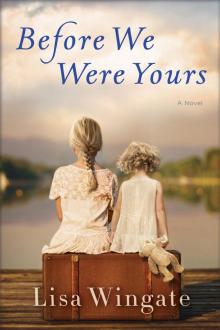 Before We Were Yours
Before We Were Yours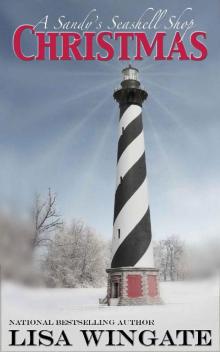 A Sandy’s Seashell Shop Christmas
A Sandy’s Seashell Shop Christmas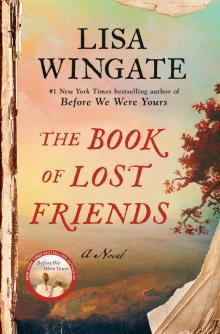 The Book of Lost Friends
The Book of Lost Friends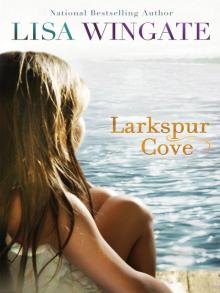 Larkspur Cove
Larkspur Cove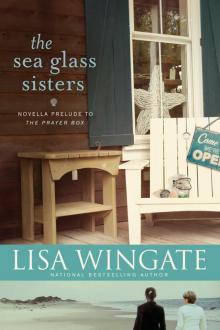 The Sea Glass Sisters
The Sea Glass Sisters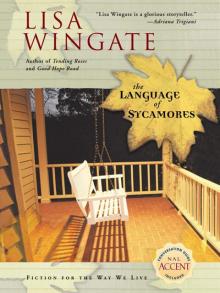 The Language of Sycamores
The Language of Sycamores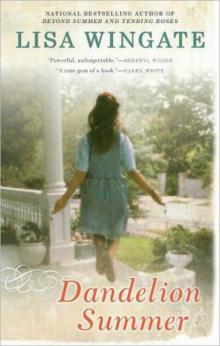 Dandelion Summer
Dandelion Summer Word Gets Around
Word Gets Around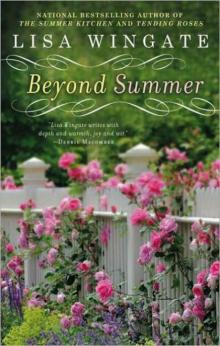 Beyond Summer
Beyond Summer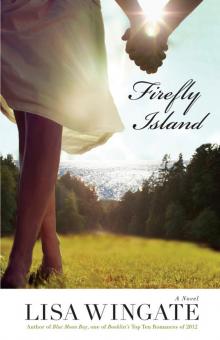 Firefly Island
Firefly Island The Tidewater Sisters: Postlude to The Prayer Box
The Tidewater Sisters: Postlude to The Prayer Box Talk of the Town
Talk of the Town![Blue Sky Hill [01] A Month of Summer Read online](http://i1.bookreadfree.com/i1/03/29/blue_sky_hill_01_a_month_of_summer_preview.jpg) Blue Sky Hill [01] A Month of Summer
Blue Sky Hill [01] A Month of Summer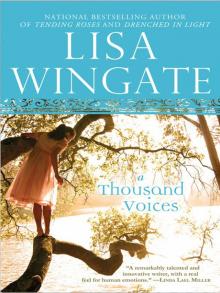 A Thousand Voices
A Thousand Voices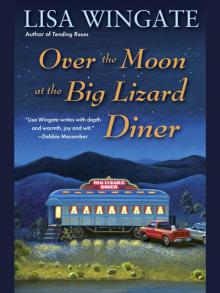 Over the Moon at the Big Lizard Diner
Over the Moon at the Big Lizard Diner Never Say Never
Never Say Never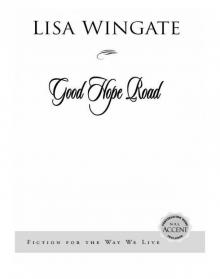 Good Hope Road
Good Hope Road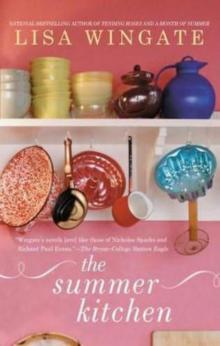 The Summer Kitchen
The Summer Kitchen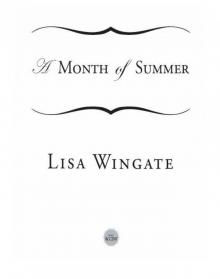 A Month of Summer
A Month of Summer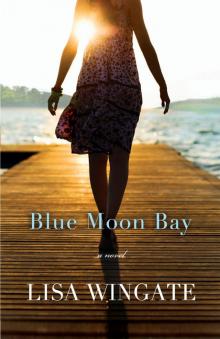 Blue Moon Bay
Blue Moon Bay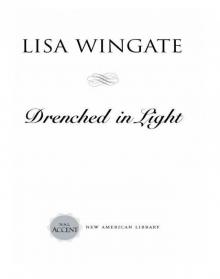 Drenched in Light
Drenched in Light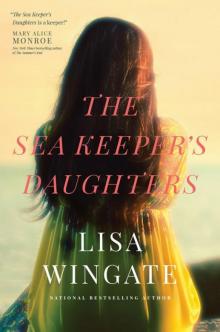 The Sea Keeper's Daughters
The Sea Keeper's Daughters